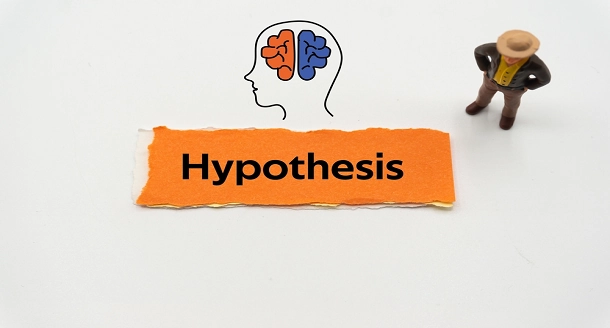
In order to write a research hypothesis, you will need to select a research topic. You should choose a topic that is relevant to your interests or a subject that interests you. You can use an example of a research hypothesis to guide you. It will help you develop your writing skills and learn the proper format for a hypothesis.
Background in research Hypothesis
Background research can seem like a long, tedious process. In order to keep it short and compelling, make sure your background research is built around a central idea. Avoid deviating from this theme or making broad reviews of existing literature. Include all pertinent details, including study gaps, but keep it concise and to the point.
What is research in hypothesis First, decide on your research question. It should be a definite question, answering a specific problem or issue. It must also be relevant to your project, including both independent and dependent variables. Then, decide if the research question is feasible to answer within the scope of the project.
Choosing a testable hypothesis
Choosing a testable research hypothesis is an important part of the research process. It states the relationship between two variables and can be easily tested to ensure that it is true. If a researcher is unsure of what to study, they can reword the question to find a more testable hypothesis. For example, if they want to know if owning a dog makes a person more physically fit, they can compare the physical fitness of dog and cat owners.
In a research project, a testable hypothesis predicts a relationship between two independent variables and must be relevant to the study topic. The hypothesis should be written in language that is easy to understand and applicable to the topic. When writing the hypothesis, it is helpful to approach the subject matter from a journalistic perspective. You may want to ask yourself the five Ws (What, Why, When, Where, Why, and How) to get a clearer idea of the subject.
Choosing a testable hypothesis with an independent variable
Choosing a testable research hypothesis is crucial if you want to create a reliable study. A testable research hypothesis is one that can be verified or disproved through experimentation. The hypothesis should have an independent variable under control and be as specific as possible. In addition, the hypothesis should state the variables that will be studied and how they will interact with each other.
A good example of a testable research hypothesis is one that states that meditation improves anxiety in patients with anxiety disorders. However, it is important to note that the relationship between the two variables is not merely correlational. The relationship between these two variables must be observable and measurable. Also, the hypothesis should be able to control or manipulate the dependent variable without harming the study participants.
Choosing a topic that interests you
When writing a research hypothesis, it is important to choose a topic that is interesting to you. While a topic that is popular with other students or professors might be easier to research, it may not be as interesting to you. Also, the topic you choose must be something you’re interested in, as this will be the basis for your future research.
As you do research on your topic, you will likely find more information than you originally expected. Try brainstorming to come up with new ideas. This way, you can get a better idea of what you want to write about. If you aren’t able to decide on a topic right away, you can always change it later on.
Writing a testable hypothesis
Writing a testable research hypothesis is an important part of conducting a research study. It focuses on finding a relationship between variables. The goal is to determine if the relationship is true, false, or a combination of both. This hypothesis must be backed by evidence. The best way to test a hypothesis is to conduct a study with a set of controlled variables.
First, the hypothesis should be clearly defined. It should explain why a particular experiment is being conducted and should include the dependent and independent variables. This statement should also clearly state the variables that must be controlled in order for the hypothesis to be valid.
Author Bio
Jesse Pinkman is a research-based content writer, who works for Cognizantt, a globally recognised wordpress development agency uk and Research Prospect, a Tjenester til at skrive afhandlinger og essays. Jesse Pinkman holds a PhD degree in mass communication. He loves to express his views on a range of issues including education, technology, and more.
